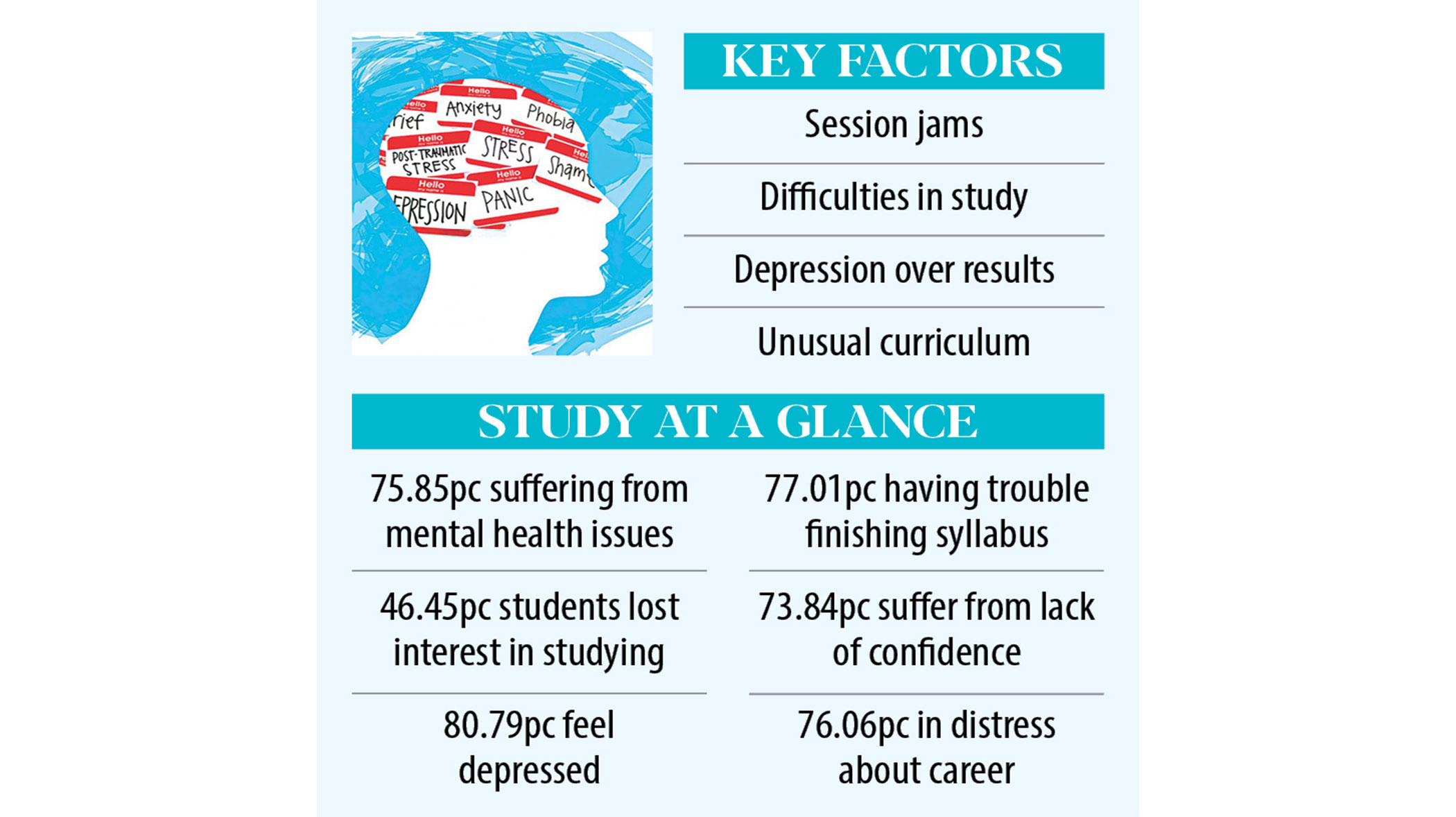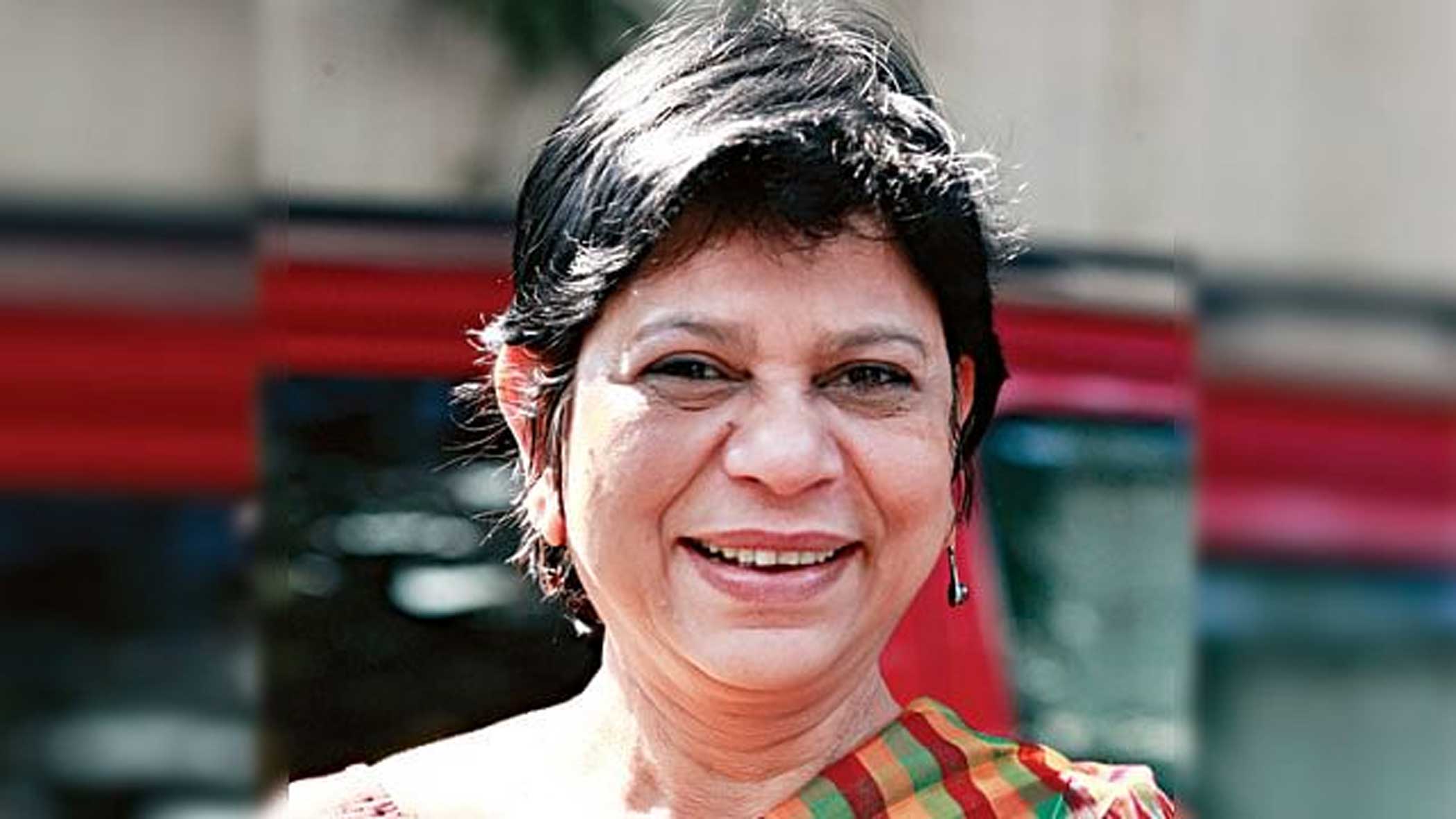A journey into students’ mental health

Youth is often painted in vivid colours – different shades of orange to express its vibrant and sociable nature, or strokes of yellow with pink shades to evoke compassion and zeal. Writers see them as a fountain of confidence, a force to contend with. But do our youthful university students agree?
The answer is a resounding NO. Many are in a state of relentless self-criticism, haunted by poor grades and past failures, irrespective of coming from a public, private or international institution. Consumed by a feeling that they are not fulfilling their family's and society's expectations, they suffer anxiety and even a serious loss of self-esteem.
Driving these mental stresses are academic practices of the past: of a dominant and authoritarian teacher, reliance on rote learning, and comparative performance assessment that fails to recognise individual qualities and inclinations. These practices, of questionable validity, also compel students to conform, inflict exam after exam, and grade and categorise them into antiquated slots, while abandoning them to devise their own imperfect solutions and sink or swim. Bringing out the best in our students is of little concern to academia. The consequent burden of mental health and its ramifications are unfortunately and routinely swept under the rug.
The subject of students' mental health is complex. To this end, our online survey attempted to provide insights into the issues that university students confront. There are many personal battles they wage daily. Some of them feel that they are not performing well enough to meet the standards set by their families, teachers, peers, and society. They also resent the treatment they receive from the university authorities who often lack compassion. Language barriers at the university level is also a major reason behind students' constant self-disparagement as English is not their forte.
The demands of the job market and Bangladesh's education system also rarely go hand-in-hand. According to the students, a number of their courses are ill-suited for today's job market. And in the Covid era, when the universities went online, students found it difficult to concentrate and absorb the knowledge availed through the new platform. The evaluations that they received were also generally subjective, with grades dispensed recklessly. Students suffered immeasurably despite their putting in a Herculean effort.
University educators and administrators are failing badly to recognise students' mental health issues. Most universities have done almost nothing in this regard. It is generally expected that students will be self-motivated to fit in with the obscure curricula and standards the universities claim to offer. After graduation, these students are expected to adapt to a completely different set of criteria set by employers. The gap in these expectations is astounding. And sadly, societal judgement places an additional layer of strains on the students to chase societally expected, ephemeral versions of success, rather than follow their hearts. There is no assessment yet on how this affects the students' mental health.
Female students complained about facing sexist attitudes at their universities, while a few experienced racism – both situations affecting their mental well-being. Private university students fared a little better compared to their counterparts in public universities on past failures and self-criticism metrics. International students seemed less affected amid their local friends in both private and public universities.
University educators and administrators are failing badly to recognise students' mental health issues. Most universities have done almost nothing in this regard. It is generally expected that students will be self-motivated to fit in with the obscure curricula and standards the universities claim to offer. After graduation, these students are expected to adapt to a completely different set of criteria set by employers. The gap in these expectations is astounding.
And sadly, societal judgement places an additional layer of strains on the students to chase societally expected, ephemeral versions of success, rather than follow their hearts. There is no assessment yet on how this affects the students' mental health.
Let us contemplate this: nearly half of Bangladesh's large population is under the age of 24. They are not being enabled or empowered, starting from early childhood. Unleashing the huge potential in the nation's human capital should be the focus of the country's current academic and political leaders. To this end, students need to be understood and dealt with in a much better way. For example, the authorities need to play a more proactive role in creating healthy social bonds among the students to make them feel like they are part of the community. Past failures should also be treated as learning curves, not a basis to punish and denigrate students as our culture continues to permit.
If influencing what and how students learn, helping shape their attitudes, behaviour, and understanding of the world is the primary goal of the university, making sure it is designed with the needs of students in mind and disseminated competently and compassionately will elicit the best from them. This mindset must begin to take root. When the youth of Bangladesh are supported creatively, not stifled or neglected, it will ease their suffocating conditions. They must be allowed breathing space in the confines of the university, steered away from the rat race of top grades. Let them think, let them imagine, let them create, let them thrive. The university system needs to be less of an assembly line churning out graduates in tens of thousands and more of a space that provides a creative, healthy, and compassionate learning environment.
This op-ed, the first of a four-part series, is the result of faculty-student collaboration designed to impact higher education in Bangladesh.
Dr Syed Saad Andaleeb is distinguished professor emeritus at Pennsylvania State University in the US, former faculty member of the IBA, Dhaka University, and former vice-chancellor of Brac University.
Gazi Asif Ahmed completed his MBA from the IBA in Dhaka University.




 For all latest news, follow The Daily Star's Google News channel.
For all latest news, follow The Daily Star's Google News channel. 

Comments